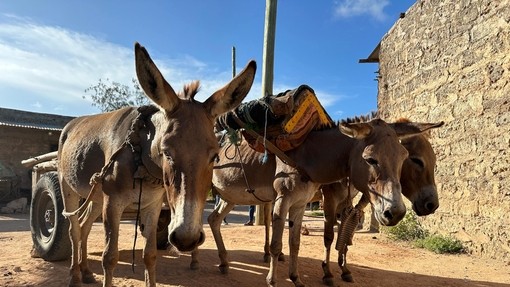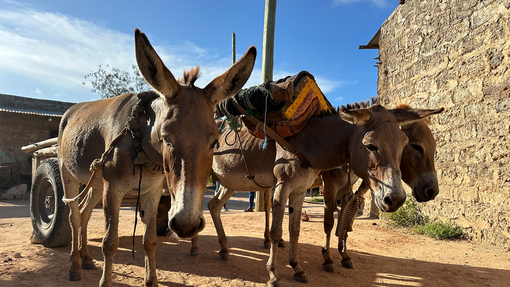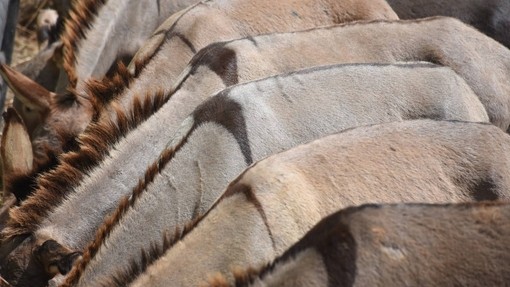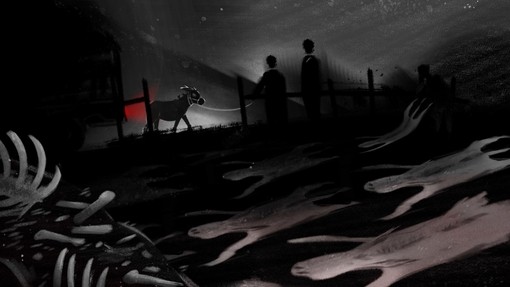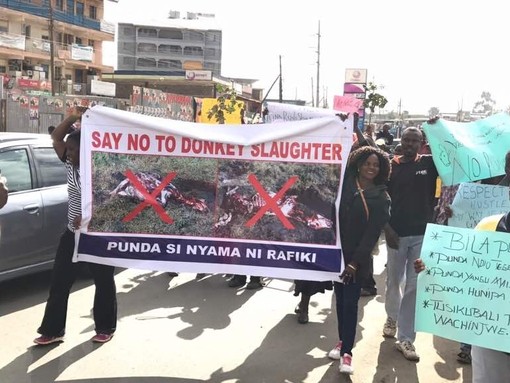
Donkey owners and governments start to take action
The huge demand from China for a traditional medicine called ejiao, made from donkey skins, is resulting in donkey-dependent communities around the world being targeted by skin traders, with a legal trade being supplemented by an illegal trade in stolen and slaughtered donkeys.
With rural communities in Kenya, who rely on working animals for their independence and livelihoods, fighting back with street protests against the trade, a strongly-worded statement from the Botswana Government announced that the escalating trade in donkey skin exports to China has been halted owing to ‘The indiscriminate and cruel slaughter of donkeys for their hides which are exported to lucrative markets in Asia.’
The move has been hailed as ‘highly significant’ by The Donkey Sanctuary, which is leading efforts to halt the trade, and follows similar moves from both Ethiopia and Tanzania.
A delegation from The Donkey Sanctuary met with the Botswana Government in April 2017 to present the findings of their investigations into the trade and the serious impact that it was having on the livelihoods of donkey-dependent communities.
A spokesman for the Ministry of Agricultural Development and Food Security in Botswana said: ‘All export licenses relating to donkeys and their products for export purposes is suspended indefinitely with immediate effect.’
In recognition of the scale and damage that the illegal trade was having on donkey-dependent communities, the spokesman urged farmers to ‘stay vigilant, keep a close eye on the donkeys and report any suspicious illegal trade on live donkey, donkey meat and donkey hides to the nearest government officials.’
In Kenya, peaceful, grassroots protests by donkey owners have been taking place over the past few weeks, with the most recent held in Ongata Rongai, south-west of Nairobi.
The Kenya Veterinary Association has also held peaceful street demonstrations in Nairobi, concerned about the harm and insecurity the unregulated trade is causing to communities.
Other protests, with as many as 300 people, have taken place in Molo and Narok Town, which are close to the controversial donkey slaughterhouse in Naivasha.
This facility, which since November 2016 has slaughtered 200 donkeys a day for their skins, was closed down by the authorities on 30 May following an investigation by Donkey Sanctuary Kenya.
As part of this undercover exposé, Donkey Sanctuary Kenya staff took photos, described by animal welfare experts as ‘sickening’, showing dead or dying donkeys lying in filth and being eaten alive by maggots, as well as dead, skinned donkeys left alongside other donkeys waiting for slaughter.
Despite the protests and fears of donkey owners, it was announced this week that a new slaughterhouse in Turkana County will be home to Kenya’s third donkey abattoir. The Zilzha Ltd slaughterhouse at Nakwaalele will process donkey meat and hides for export to China after having been built at a cost of Kenyan Sh200 million (UK £1.5 million).
In a Kenyan news report this week, local resident Peter Lolem, said: ‘Our donkeys are in danger. The number of donkeys being slaughtered daily is high and it is a threat to our nomadic way of life. The donkey is the only means of transport.’
While Africa is a focus for donkey skin traders, demand is so great that more countries are being targeted.
The Donkey Sanctuary is working with partners around the world to monitor and lobby against the skin trade due to both its unsustainability and animal welfare implications.
Your support makes stories like this possible
Share this page
Tags
- News

